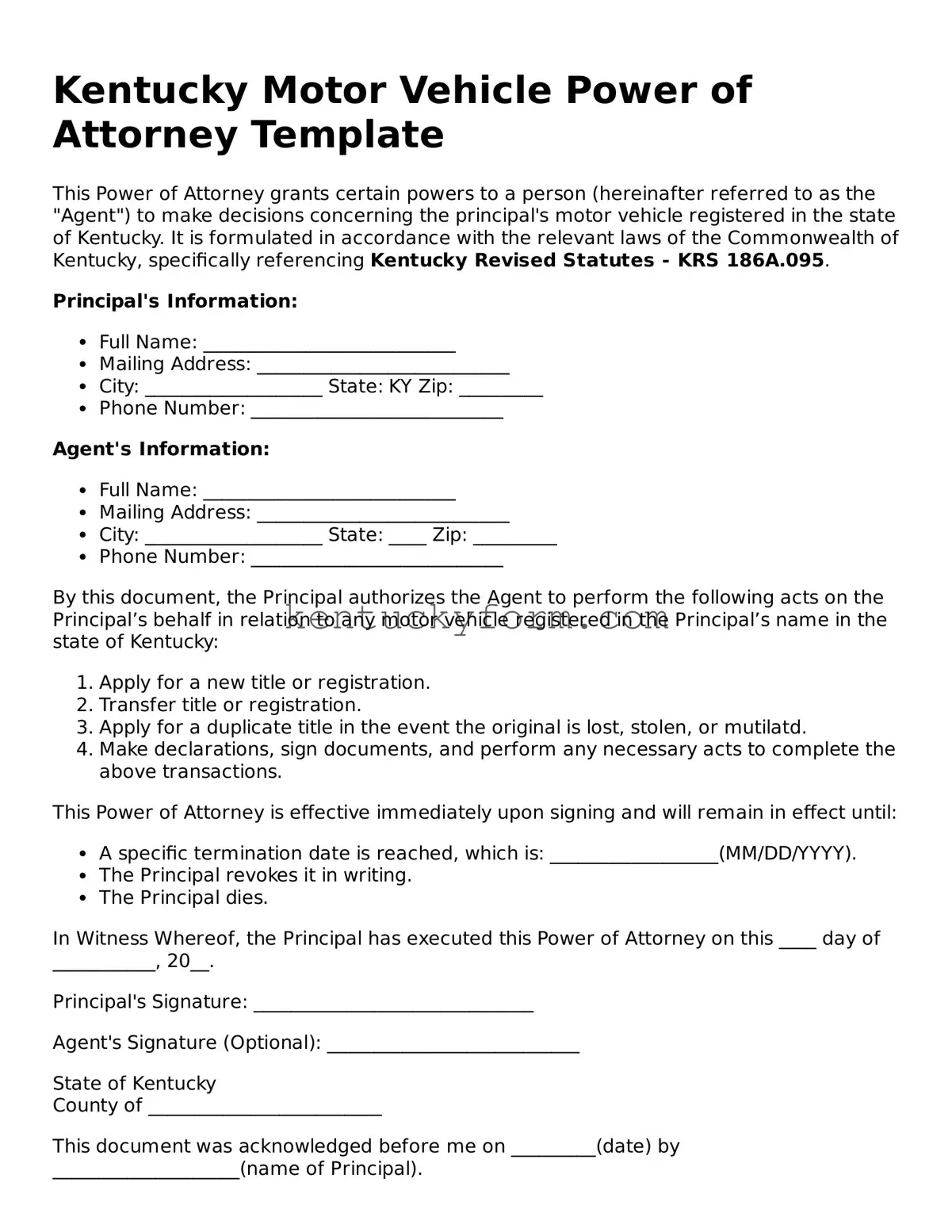When completing the Kentucky Motor Vehicle Power of Attorney (MVPOA) form, individuals often encounter hurdles that can complicate otherwise straightforward processes. A crucial document, the MVPOA allows a vehicle owner to designate another person to handle certain affairs related to their vehicle, such as registration or title transfer. Despite its importance, common errors are frequently made during its completion, leading to delays and sometimes even legal challenges.
One widespread mistake involves not accurately identifying the vehicle in question. Every car has a unique identifier known as the Vehicle Identification Number (VIN), which is essential for any legal document concerning a motor vehicle. The precise entry of this number is crucial; even a single misplacement can render the document invalid. Moreover, the make, model, and year of the vehicle must also be correctly specified to avoid any ambiguity regarding the vehicle in question.
The choice of agent is another critical aspect where errors often occur. An agent, in the context of a MVPOA, is someone entrusted by the vehicle's owner to act on their behalf in specific matters. It is not uncommon for individuals to appoint an agent without ensuring the person is both willing and capable of fulfilling the duties required. This oversight can lead to complications if the agent is unable or unwilling to act when needed. Additionally, accurately documenting the agent's full legal name and contact information is essential to ensure they can be reached without difficulty.
Further, an error frequently made is the incomplete signing and notarization of the document. For a MVPOA to gain legal validity, it needs to be signed by the vehicle owner in the presence of a notary. Often, individuals overlook the importance of this step or incorrectly assume that a witness's signature alone suffices. Notarization acts as a fraud-preventive measure, attesting to the identity of the signer and their willingness to sign the document in their free will.
Incorrect or incomplete information entry represents yet another common mistake. The MVPOA form requires specific details about both the principal (the vehicle owner granting the power) and the agent. Errors in providing accurate addresses, contact numbers, or even misspelling names can invalidate the power of attorney or, at the very least, delay its processing. The accuracy of the information not only facilitates smooth transactions but also ensures that any correspondence related to the vehicle can be correctly directed.
Lastly, overlooking the state-specific requirements can complicate the efficacy of a MVPOA. Kentucky, like all states, has its standards and prerequisites for vehicle-related legal documents. Ignoring or misunderstanding these specifications can result in a document that does not comply with Kentucky law, making it unusable for its intended purpose. It is therefore imperative for individuals to familiarize themselves with the state's specific requirements before filling out the form.
In summary, when filling out the Kentucky Motor Vehicle Power of Attorney form, individuals should ensure that the vehicle is described accurately, appoint a reliable and willing agent, complete the signing and notarization process correctly, provide complete and accurate personal information, and adhere to state-specific legal requirements. Avoiding these common mistakes will help facilitate a smoother legal process and ensure that the intended actions regarding the vehicle can be executed without unnecessary setbacks.

